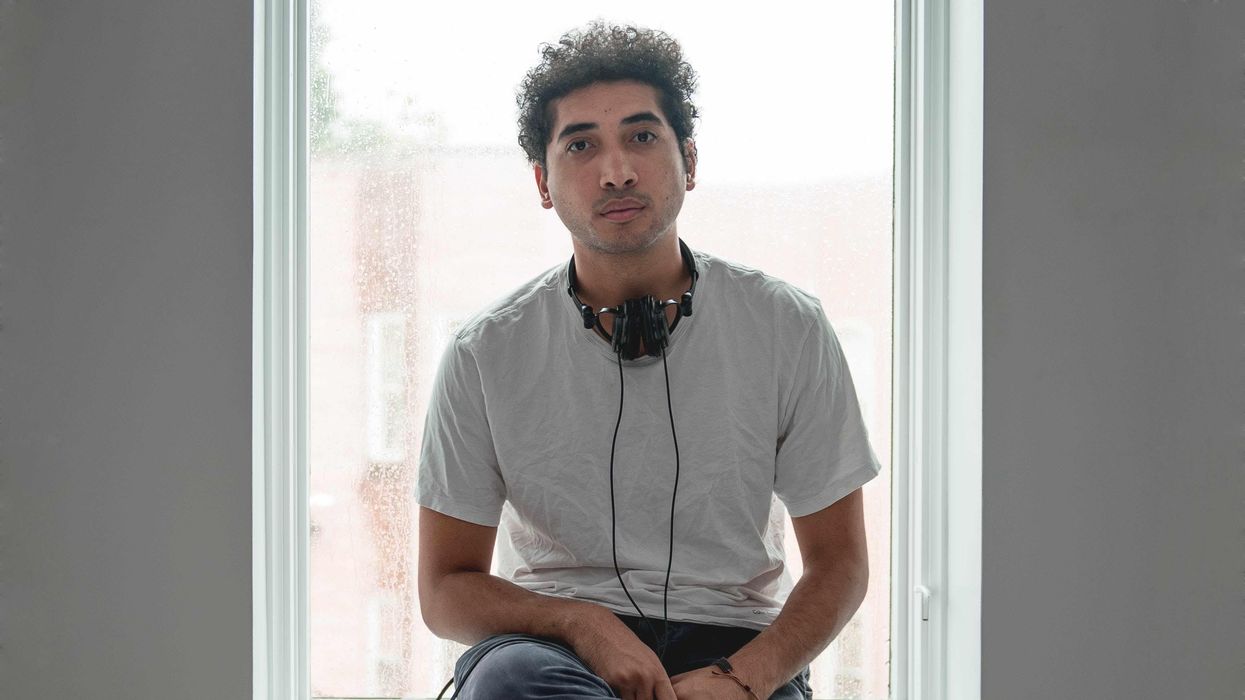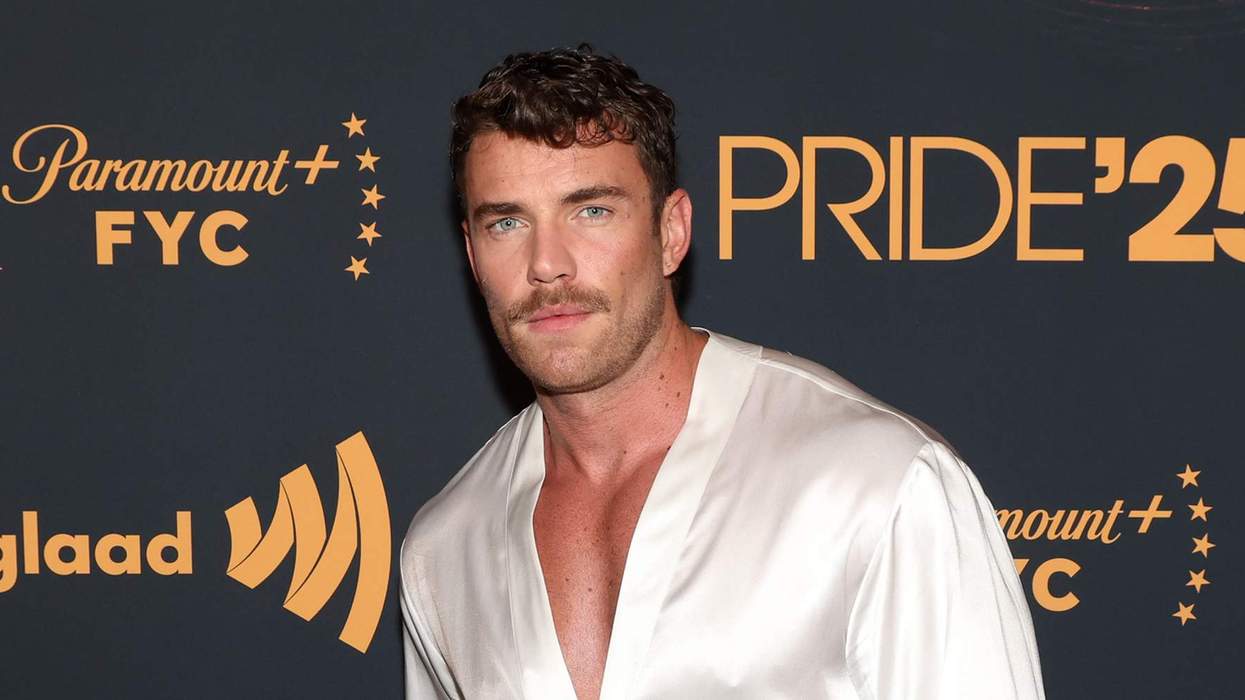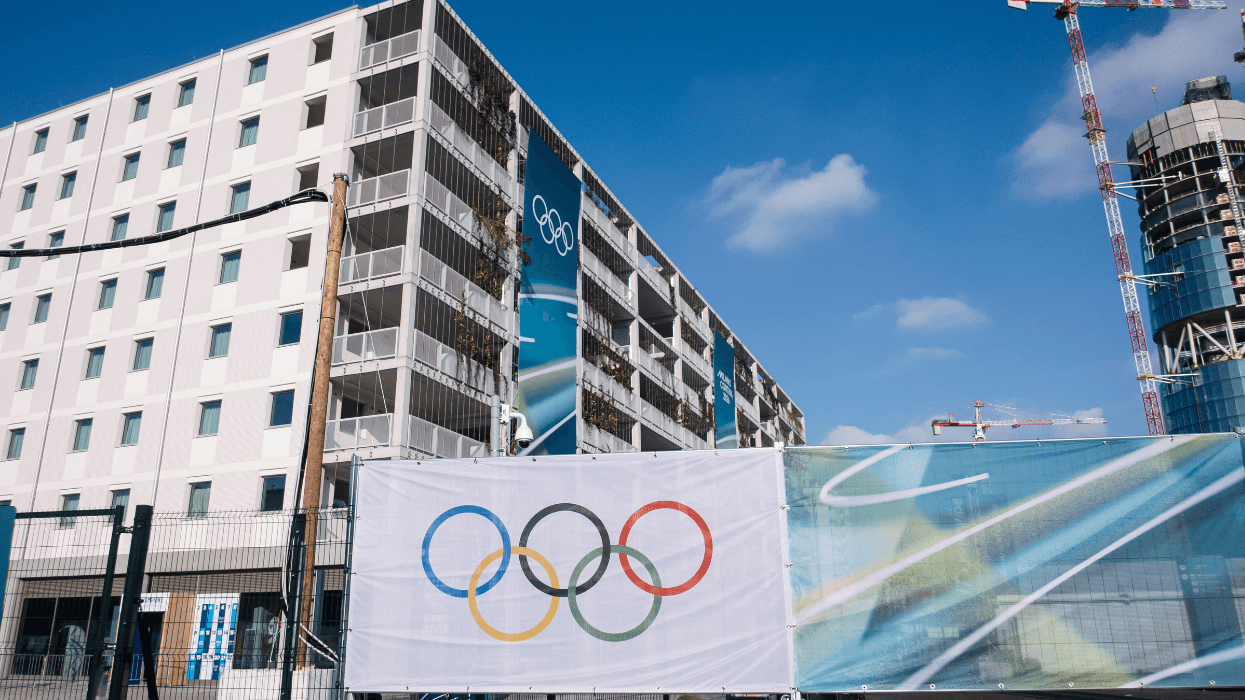Writer-director Sam Abbas knows what it's like to have parts of his identity in conflict with each other. Born in Alexandria, Egypt, he grew up in a strict Muslim home where being anything other that hetero was frowned upon.
"I was ingrained with a lot of traditional ideas about sexuality, sex before marriage, drinking alcohol, and all these things," he told OUT. "I had this huge internal struggle of how culture and religious offerings were affecting myself even though I wasn't religious."
He says when he left for college and began sexually experimenting and figuring out the person he wanted to be, guilt, which he now sees as unnecessary, ensued. That's why he wanted to make his debut feature film, The Wedding, about the struggles people sometimes go through to please both their desires and the expectations of their broader world.
The Wedding stars Abbas as Rami, a Muslim man who's prepping for his wedding to Sara, played by Nikohl Boosheri. But the couple have yet to set a date -- to Rami's mother's chagrin -- because Rami is closeted, having sex with men behind everyone's back.
Abbas revealed to OUT what it was like staging secret screenings of his movie in Egypt, Turkey, Tunisia and Lebanon, countries where such a film is all but banned.
Were you at all hesitant to tell this story about a guy who's supposed to be marrying a woman but is having sex with guys behind her back?
No, because I thought it was the perfect way to demonstrate Rami's repression. The type of film I wanted to make was an observational film where you're watching these characters in this time and space and not knowing much about their history but the way they're reacting makes you assume a certain thing. To me, Rami is clearly coming from a very repressed culture, very repressed upbringing so I think he's not sure what he wants. He knows that he has to get married in order to please his family, in order to feel that he is doing the right thing. But at the same time he's sleeping with guys. It's all confusion. It's all out of, not rebellion, but sexual frustration from not knowing anything, not having proper education on sex.
The same with Sara. She's also doomed into this wedding because she's not religious either, but she's born to think she has to have anal sex rather than vaginal sex so she can remain pure. So for her, the wedding is very much the same for Rami, a saving moment where they could potentially give in to what the culture expects of them and then in secret they do what they want.
This was the first LGBTQ film to screen theatrically in the Middle East, but it was done in secret. Why? Are there censorship laws?
In the Middle East, it's not at all allowed. In Egypt for instance, if you're just a supporter or friend of someone in the LGBTQ community, you're going to get severely harassed. It's not illegal to be gay, but they're going to put you in jail using debauchery laws. There are so many different ways for them to throw you in jail for being gay, in place of something else.
And it's not just the government that's against LGBTQ community. It's the people as well. A recent poll said something like 98% of all Egyptian people said that they don't agree with it, said they don't want gay people there. It's very strict, very scary. This is probably the most stress I've ever had in my life, those two weeks. That's exactly why there were certain rules for these screenings.
What were some of the rules?
First one, I couldn't attend. That was for my safety and the safety of others. Because this film got a lot of press, my reps and co-producer didn't want the risk of me being followed. Another thing is, if you were invited, which was a rigorous process, you had to sign a non-disclosure agreement and provide a copy of your ID. By providing a copy of your ID, it essentially makes sure you do not talk about the screening because now you're a part of it. We really needed to make sure that nobody talks about this.
There was absolutely no reporters. We were afraid that any slight thing could blow it up. We couldn't risk the theater being identified, the people attending being identified, the organizers being identified. You couldn't bring a guest. There were no cell phones and cameras allowed at all. You were searched as you entered the theater and there were two people standing during the screenings to watch and make sure you did not have any electronics. There was no re-entry at all. Those were some rules. Some of them may seem very tough, but it's the only way for us to ensure that people are safe or they could end up in jail or severely harassed.
Was there any particular importance for you in screening the film in the Middle East?
I was born in the Middle East and that's exactly why we started a production company, ArabQ, at the Berlin Film Festival and we based it in Alexandria. That's where I'm from and I want to have ties there and at the same time I want to encourage people of the [queer] community to tell their stories.
What advice do you have for other filmmakers in the region who want to tell queer stories but are hesitant?
You have to do it. We need more ethnic stories, more stories within the LGBTQ community. I myself am tired of watching the same thing over and over. The beauty of [screening the film throughout the Middle East] was having a person of the community sit down in a movie theater and watch a film that they could relate to.
As the film premieres in the United States, what do you hope American audiences take away from it?
I really do hope American audiences are more aware of some of the struggles that a lot of ethnic queer individuals are still dealing with. I think we've gone to such a great level where a lot of people are able to come out, but at the same time there is still a large audience of people that cannot come out because of the amount of repression and all these things that they grow up with. At the end of the day, to be honest, I wanted to make a film that was very truthful to myself, truthful to how I feel, and by doing that, I feel a huge load off my shoulders. At this point I just want to show it to many audiences and hope they identify.
The Wedding is screening at New York's Cinema Village beginning Dec. 14. Check out the film's trailer below:





























